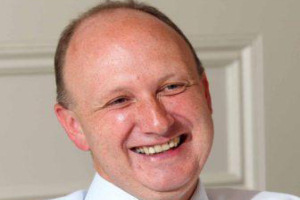Royal Academy role for Colin Bailey
19 Jul 2012
Professor Colin Bailey, Vice-President and Dean of the Faculty of Engineering and Physical Sciences, has been elected a Fellow of the Royal Academy of Engineering.

Professor Bailey is internationally renowned in the field of structural fire engineering, having been the lead expert in reviewing the structural fire design of iconic buildings in London, such as The Shard, The Pinnacle, Heron Tower and Leadenall. He has also been an expert on a number of other projects, including explaining the collapse of the World Trade Centre following the terrorist attack in 2001.
In addition he has published 99 research papers and 11 design guides and has been awarded eight prizes for his work. He has developed the ‘Bailey/BRE’ design method, which utilises membrane action of floorplates to allow the optimum specification of protection to steel beams, within the fire safety design of buildings. The method has been used on a number of projects, with its use growing throughout the industry. The method was first presented in a research paper in 2000 and is now presented in industrial guides.
He has served on the Joint Board of Moderators, where he has contributed in a number of ways including being Chairman of the working group who developed guidelines covering the teaching of design on all university degree programmes. He has been external examiner at a number of universities where he has provided overall curriculum advice. He serves on a number of committees, including currently being the only academic on the Standing Committee on Structural Safety.
Professor Bailey entered academia from industry at the age of 35, when he was offered a chair in Structural Engineering. He has provided strategic leadership in the area of engineering in various roles. In his current role, as Vice President and Dean of The Faculty of Engineering and Physical Sciences, he is responsible for 1,913 staff, 9,600 students and an income of over £200 million. He has been responsible for turning an operating deficit of £14.6 million into a £6.9 million surplus within two years, whilst providing leadership to increase the quality of engineering and science across the board. One of his major strengths is his understanding of all disciplines allowing him to bring together expertise to address the grand challenges facing society and the ever-changing needs of industry.
He would be expected to take up a role within the Academy with the same drive and enthusiasm as he undertakes his research and strategic leadership roles and, based on his experience, he will be able to seamlessly bring together academia and industry to meet the challenges facing society.
